Istrian Democratic Party (IDS) Warns of Problems Regarding Additional Voting Rights For Italian Minority
ZAGREB, 11 May, 2021 - Istrian Democratic Party (IDS) secretary-general Giovanni Sponza and MP Katarina Nemet on Tuesday pointed to a problem concerning ballots that makes it more difficult for members of the Italian minority to exercise their additional right in the 16 May local election.
Sponza said that in towns and municipalities where this is so regulated, as well as at the county level, deputy heads from the Italian minority are elected on separate slates, which, he said "is a novelty of the coming election because until now they were elected on the main slate together with mayoral candidates."
"In addition to being able to vote for candidates for municipal heads, mayors and the county head, as well as for municipal and town councils and the county assembly, members of the Italian ethnic community also have the right and can vote for their own candidates on a separate slate," said Sponza.
However, he added, in line with instructions from the State Election Commission, members of electoral committees do not have the obligation to offer a ballot with nominations for deputy heads from the Italian ethnic community but rather members of the Italian community have to ask for it themselves.
The problem is that a large number of members of the Italian ethnic community are not aware of that possibility, Sponza said, noting that stakeholders who set rules should make an effort to inform voters of their legal rights and possibilities and that by making voters ask for a ballot on their own, they are discriminating against them.
"We consider that unfair because all citizens should be equal in the election process," said the IDS official, adding that he wanted "to believe that this approach has nothing to do with the coming census in Croatia."
For more about politics in Croatia, follow TCN's dedicated page.
Best Zagreb Mayor By Historians: Historians Shouldn't Rate, But Većeslav Holjevac Takes Lead
May 11, 2021 - Ahead of the local elections, following the death of Milan Bandić and troubling issues Zagreb is facing at the moment, TCN reporter Ivor Kruljac wondered who is the best Zagreb mayor by historians.
With the local elections happening in Croatia this Sunday, just as every year, 2021 is no exception, with all eyes directed on Zagreb. This is no surprise, given that, for better or worse, Zagreb is the capital city, the center of politics, culture, science, education, and the spot where Croatians from other smaller towns, villages, etc. come in search of a job and new opportunities. You may not necessarily need to leave the country to leave your dreams, and despite other regions of Croatia slowly but surely developing, Zagreb is still considered by many as the necessary place to go to achieve something.
And this year, the eyes are even watching in even bigger suspense; Milan Bandić, who was the first man of the city for 20 years, passed away in February. The ever-controversial political figure (now replaced by his deputy Jelena Pavičić Vukićević, who also runs in the elections) suspected of corruption, being arrested during his mandate and on several trials, left lots of unresolved issues which the new mayor will have to address in the city's administration. Additionally, the current corona crisis caused some new challenges, and last year's earthquakes and city reconstructions are still a hot political topic among citizens.
Zagreb: History of overcoming the crisis
Challenging circumstances in 2021, no doubt, but certainly nothing Zagreb isn't used to. While settlements on the city's territory date earlier, the first mentions of Zagreb are linked with establishing of Capitol Diocese in 1094. Since then, diseases, earthquakes, floods various wars (WW1 and WW11 included, as well as the 90s war Croatians commonly refer to as the Homeland War), disrupt the peaceful life of Zagreb citizens. The city still stands. But of course, these different troubling contexts were handled not just by citizen's persistence but also by the city's authorities and leaders.
Throughout the turbulent history, Zagreb had, concluding with current deputy Jelena Pavičić Vukičević, a total of 53 mayors. The first one was as, Povijest.hr writes, Janko Kamauf, whose term lasted six years, from May 15, 1851, to 1857. He was a former city judge of Gradec, a title whose authorities basically made him the mayor of Gradec. Following the unification of rival Gradec and Kaptol into one city in 1850, he was elected to be the first leader of a city whose population at the time counted 16,036 people.
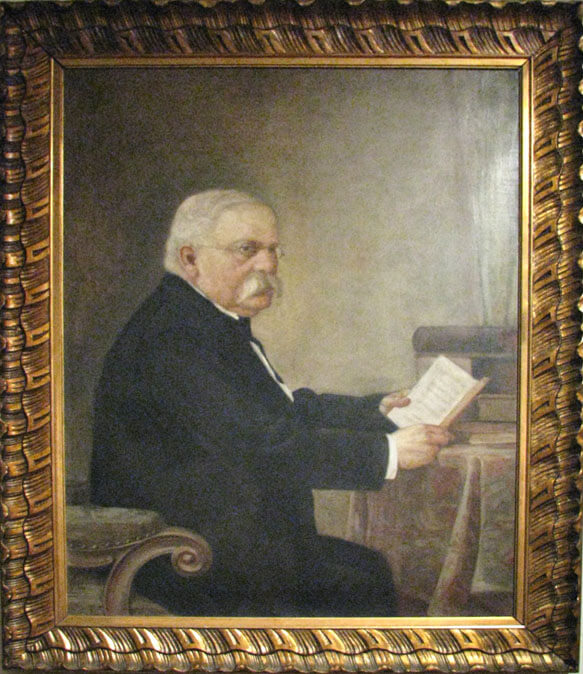
Janko Kamauf painted by Bela Čikoš Sesija, showcased in Zagreb City Museum © Unkown author, Wikipedia
He was the first, but was he the best?
I asked several historians if could they rate and pronounce in their opinion, with regards to the specific contexts, who was the best Zagreb mayor, from Kamauf to Vukičević Pavičić.
Two votes for Većeslav Holjevac!
„I'm not into grading, that's not a historian's task. Our task is to explain and put on the table facts and context of events“, said Ivo Goldstein when I asked him about the best mayor of Zagreb.
Ivo Goldstein may be best known to the Croatian public as a harsh critic of the far-right and the fascist regime of the Independent State of Croatia. As a Historian, he took an interest in various topics related to Croatian history.
At the start of his career, his focus was on Byzantine Empire and Croatian Middle Age History as well as the history of Jews in Croatia. In mid 90's he moved to the various aspects of Croatian history in the 20th century.
He was a professor of various history courses „General History of the Middle Age“ (1984-2003), history of methodology (1991-1996), and many more and today a full-time professor at the Department of History on The Faculty of Humanities and Social Sciences, the University of Zagreb (where he mastered and later completed his Ph.D. thesis at the Faculty of Humanities and Social Sciences, University of Belgrade).
Goldstein's scientific papers received positive acclaim in various countries worldwide, he hosted various projects scientific projects and associations and is very active in Croatian public space when it comes to historical issues that shape the ideas and decisions of current policies in Croatia.
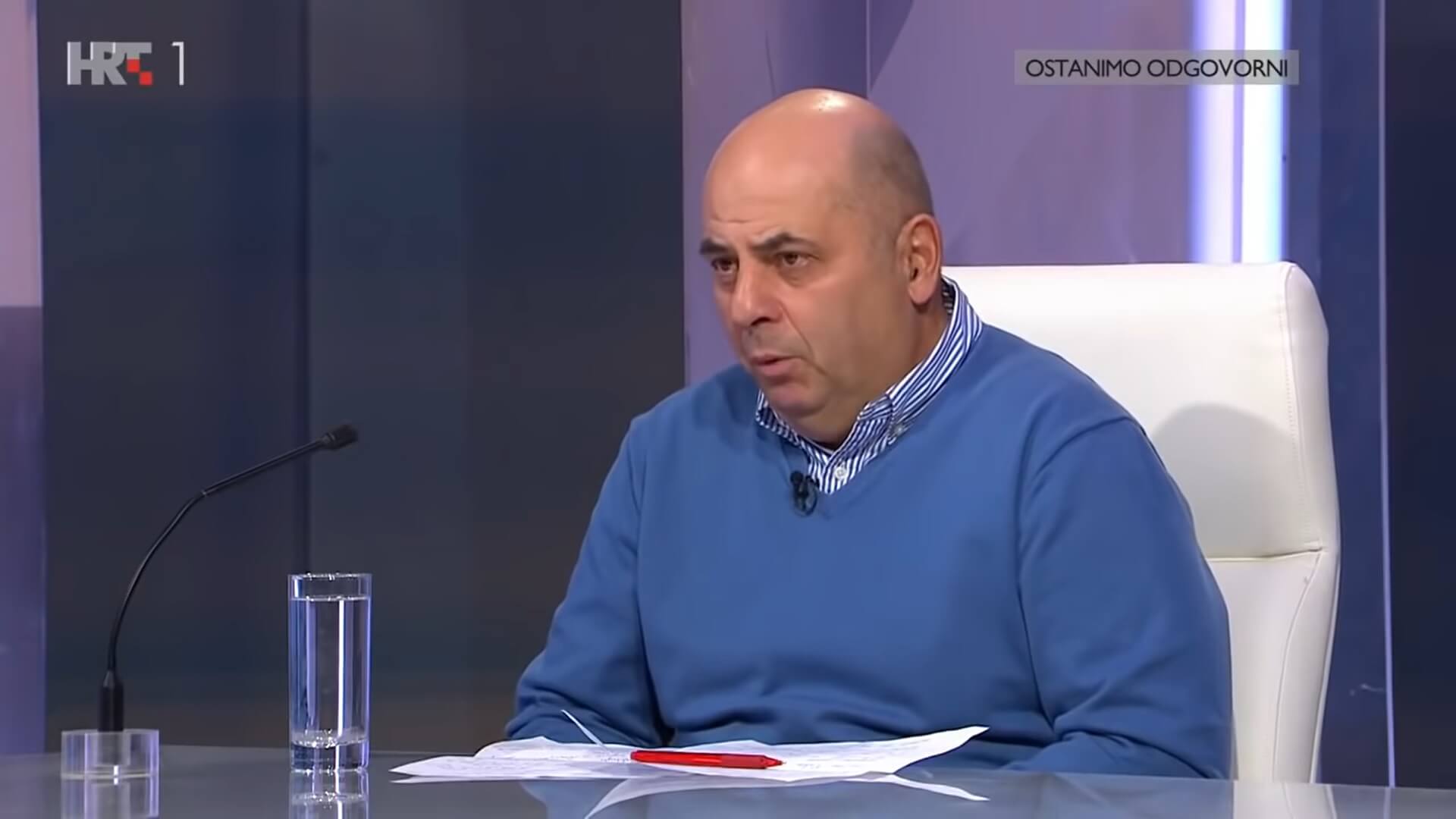 Ivo Goldstein / screenshot HRT Nedjeljom u 2
Ivo Goldstein / screenshot HRT Nedjeljom u 2
Upon explaining the role of historians, professor Goldstein nevertheless didn't mind giving his personal opinion.
„For me, there is no doubt that the best mayor of Zagreb is Većeslav Holjevac“, said Goldstein.
Većeslav Holjevac was the Mayor of Zagreb from 1952-1963 and his eleven-year mandate saw Zagreb develop and spread as the city.
„At that time, Zagreb was the capital city of Socialist Republic of Croatia, which was part of Yugoslavia. Holjevac saw a boost by liberal politics, it was the time of growth and optimism and Holjevac knew how to use it. He was a man of action and used Yugoslavia's opening to the world to Zagreb's benefit“, explained Goldstein.
He added that Holjevac didn't want to be perceived as some sort of transmission of higher state authorities. He didn't hide behind forums and was an independent, free-minded politician, which made him known and beloved among citizens.
„But it made him unloved among the higher power of authority which ended his mandate, although we historically don't know the real reason why Holjevac stopped being mayor“, Goldstein pointed out the mystery which is yet to be cleared up by historians.
The key term of Holjevac's mandate is the General Urban Plan which saw the development of the Most Slobode (Bridge of Freedom), expansion of Zagreb city to south across Sava river, and what today is Novi Zagreb (New Zagreb), as well as building up Zagreb Airport.
„Holjevac knew how to surround himself with good associates who were both dreamers and experts. Holjevac also engaged himself in the projects and his associates felt safe and that he got their back“, explained Goldstein.
The best example of that boldness and visionary approach can be seen in the Zagreb fair which was at that time located at the place of today's Student Centre in Savska.
„The fair needed expansion but was surrounded by railroad tracks everywhere, and the question was how to expand it. There were several options, but Holjevac decided to take it across the Sava river, and it happened. It was quickly constructed, and the first fair on newly build location was the Autumn fair in 1956. and it was the biggest event of its kind in the world back then“, said Goldstein, gladly adding he even had a chance to meet Holjevac as a 12-year-old since the mayor knew his father, an established Croatian intellectual, and politician, Slavko Goldstein.
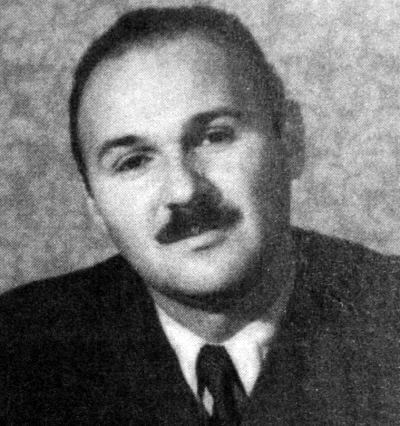
Većeslav Holjevac © Udruga Kameleon / Wikipedia
Hrvoje Klasić was professionally most occupied by Većeslav Holjevac, so he also shares Goldstein's opinion about Većeslav Holjevac.
„In a sentence: Zagreb has never been more developed as it was after Holjevac“, summarized Klasić.
Hrvoje Klasić graduated in 1997 from the Department of History, Faculty of Humanities and Social Sciences at the University of Zagreb. At the same University, he defended his dissertation entitled “1968 in Yugoslavia. Socio-economic changes in an international context”. Since 2003 he has been employed as a professor at the same Faculty and University.
Today, he holds a number of courses related to the world and national history of the 20th century.
Hrvoje Klasić also won the Annual Award of the Association of University Teachers and other Scholars in Zagreb in 2006. That same year he won the Annual Award of Sisak City for the Book „Croatian Spring in Sisak”. He is the author of 3 more books and the author of two documentary series „Croatian Spring“, and “The Independent State of Croatia” produced by Croatian Television. In 2017 The Serb National Council in Croatia gave him an award for the improvement of Croatian-Serbian relations. In 2019 he won the Award for the promotion of peacebuilding, nonviolence, and human rights.
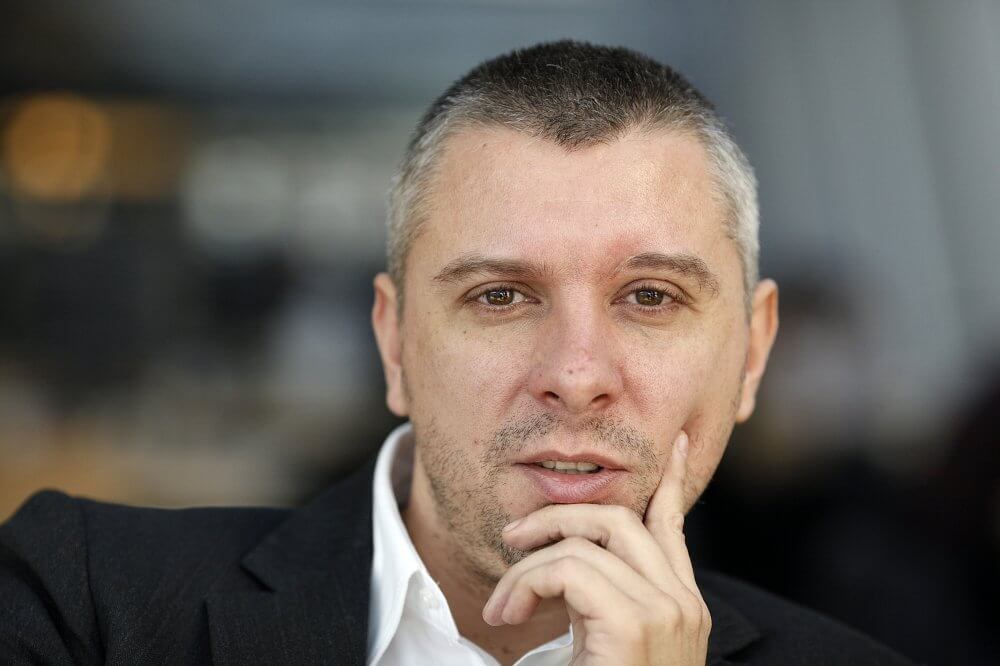
Hrvoje klasić © Hrvoje Klasić
„Most people don't know that Holjevac technically wasn't a mayor, rather he was a president of the City's National Council“, explained Klasić the precision of the functions in the previous Yugoslavian state. He added that while his term lasted from 1952-1963, that is only partially true because he was first appointed to lead Zagreb in 1945.
„In 1945, he was named the city commander who was a military function but he was also in charge of food, traffic, working with several refugees after World War 2 until he gave the control over to civilian bodies“, describes Klasić.
Holjevac then moved on to be the minister of work and traffic in the Social Federal Republic of Croatia. However, at that time, Yugoslavia was going under a change in its political institutions by the self-governing policy which went under parole „factories to workers, cities to citizens“, and as a result, Holjevac 's ministry was shut down. His return to the top position in Zagreb happened without him even knowing.
„As part of self-governing, the Communist Party in Zagreb searched for someone who isn't just going to execute orders from above but instead is an individual that has quality, creativity and will make its own decisions. Holjevac was elected during a meeting he wasn't even present on, and some members of the party were worried is it smart to give Zagreb to a person who is from Karlovac“, said Klasić.
As Goldstein already mentioned, his term lasted over a decade, and Klasić adds that was a very unusual duration at the time.
While Goldstein already mentioned the traffic connections of Zagreb, Klasić said it is very hard to count everything Holjevac built, but he put focus on the industry. Industrial plants of organic-chemical industry, Zagreb heating plant, industrial plants of Pliva pharmaceuticals, Chromos paint company, Kemika, Zvijezda company, Katran, Badel company for alcohol spirits, an ice rink on Šalata, winter pool and gymnastics gyms on Mladost, Yugoton record company, Jadran Film, TV tower on Sljeme, Zagreb drama theatre, an emergency room in Draškovićeva, various elementary and high-schools, and began construction of Vatroslav Lisinski concert hall and more.
„Before Holjevac, there were 40,000 workers in Zagreb. After Holjevac, there was 110,000“, said Klasnić to illustrate the results which made the city the strongest industrial center in Yugoslavia. Apart from industry, Holjevac put a lot of focus on culture and education, as evident by building Workers University Moša Pijade for adult education (today's Public Open University Zagreb) and culture.
Holjevac's „Jump over Sava“ was done on the one hand to prevent interventions in old Zagreb, and on the other, the organizational construction of Novi (New) Zagreb saw the workers live close to the newly built factories.
As Goldstein already referred to Zagreb Fair as perhaps the most significant project of Holjevac's mandate, Klasić added that the unique geopolitical position of Yugoslavia as the bridge between east and west, thanks to the non-aligned movement, made the fair a key place worldwide.
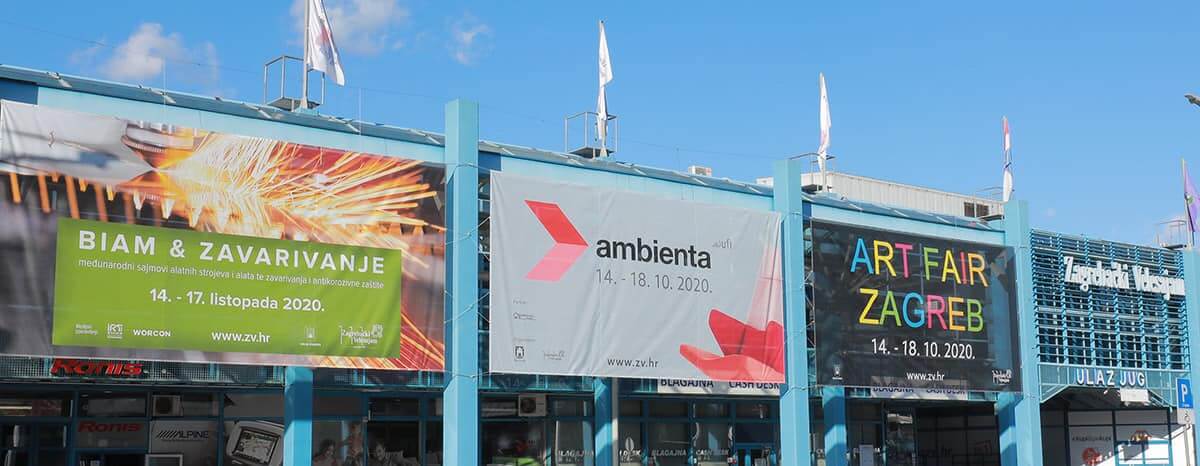
Southern entrance of Zagreb Fair in 2020 © Zagrebački Velesajam
„The fair was not just important for holding exhibitions, but for making deals and signing contracts as well. Given Belgrade was the capital of Yugoslavia, there were pressures to have such a fair there, and there were even boycotts from Belgrade to Zagreba Fair events. However, Holejvac being both persistent and enjoying support by the Yugoslavian president Marshall Josip Broz Tito, managed to keep this significant place in Zagreb“, explained Klasić.
When asked about resentment of other politicians, and the unclear mystery of concluding his mandate, Klasić said he had a chance to look at archives about Holjevac while working on an exhibition about him, and he feels that the situation is much simpler.
„Holjevac basically left due to the same politics that got him to be the mayor in the first place. The Self-Governing model started descending to the lower levels of the system and started searching for creative people. In 1963, a new constitution was brought that further developed the political system to give City Assembly more power accenting the community governing Zagreb. Holjevac's president of City's National Council title has shut down, and the president of Assembly became the first man of Zagreb.
Rotation of politicians as well as limited mandate time was arranged too“, explained Klasić.
He added, however, that it is problematic that an experienced, capable, brave, and brilliant man like Holjevac wasn't put to better use after he stopped being mayor and played bigger roles in Yugoslavian political life.
There isn't the best, only good and bad mayors
Unfortunately, other historians, I contacted (and of course, I couldn't contact every single one, who knows who else might be interested to participate), didn't respond to my inquiry. While Ivo Goldstein explained rating mayors isn't historian's job, Stevo Đurašković, professor at the Faculty of Political Sciences in Zagreb, further elaborated the problem of my question.
„I'm not a fan of such an approach to the topic like it's a miss pageant. In Zagreb's history (as in good portions of cities around the world). There were several great mayors, again, each in its own historical context“, explained Đurašković.
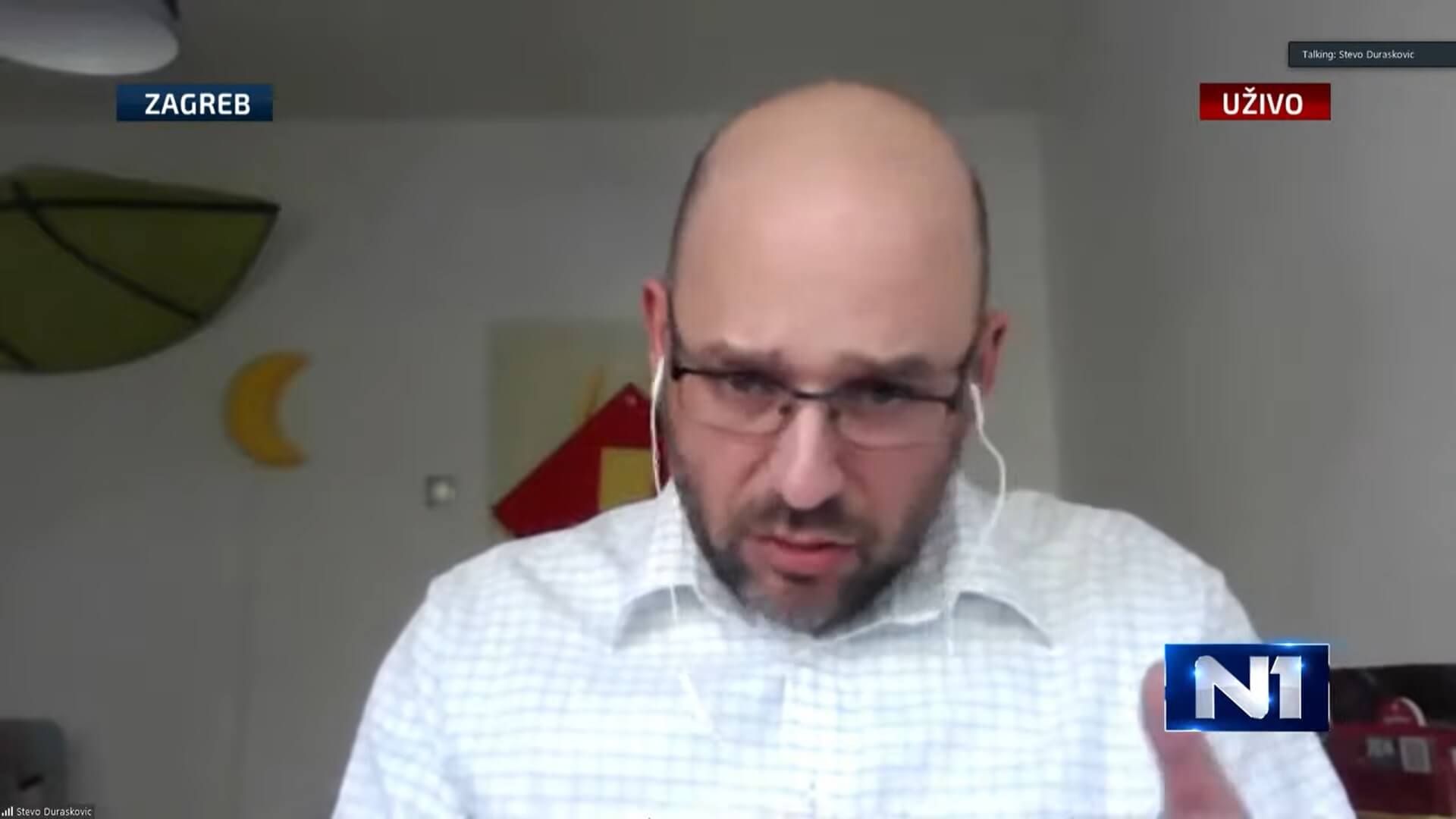
Stevo Đurašković, screenshot / N1
Stevo Đurašković is an Assistant professor at the Faculty of Political Sciences, University of Zagreb, where he teaches courses in politics of history and Croatian history. He received his Ph.D. in Political Science from the Faculty of Social Sciences at the University of Ljubljana and his MA in Central European History from the History Department at the Central European University, Budapest. His research interests include the politics of history, intellectual history, and national identity-building processes in East-Central and Southeastern Europe. Recently he published the book The Politics of History in Croatia and Slovakia in the 1990s (2016). Participated in several international projects, including “Identity Reader: Regional Identity Discourses in Central and Southeast Europe, 1775-1945” (CAS, Sofia). He is a member of the editorial board of the Cultures of History Forum (Imre Kertész Kolleg, University of Jena). In 2009/2010. He was a Ph.D. research fellow at the Faculty of Economic and Social Sciences, Comenius University, Bratislava (CEEPUS grant, Visegrad Fund grant).
In other words, an expert in his respective field with a valid and knowledgeable opinion.
„Milan Amruš and Većeslav Holjevac were great mayors. How to determine if Amruš's development of pre-war Zagreb is greater than Holjevac's post-war development of Zagreb?“ concluded Đurašković his decline to comment who would be the best mayor of Zagreb.
Speaking of Amruš, he was Zagreb mayor in two separate mandates, the first one lasting from 1890 to 1892 and the second from 1904 to 1910. Lice Grada reports that some of the accomplishments in Maruš terms include electrification of the city, and building up Munjara Power Plant (in 1906 and 1907). Under Amruš's mandate, the website continues, horse trams were replaced by electric trams in 1909 and new tram lines and the expansion of the previous one from Ilica to Topnička Barracks were constructed. In addition, 1890 saw lower and upper Zagreb connected by a funicular.
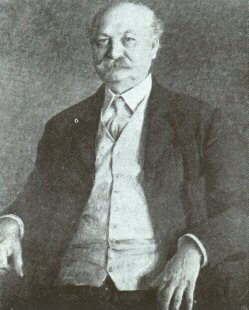
Milan Amruš © Unknown author Wikipedia
Đurašković also added in his decline that Pero Pirker is often „a forgotten mayor“, and Klasić mentioned him as the Holjevac's successor. Mentions of Pirker are also noted on Nacionalne Manjine (National Minorities) site that declared Pirker as a noted Zagreb mayor.
"There is no doubt that Pirker is one of the most capable, most successful, and in its time an extremely popular mayor. But it is stunning that for political reason, considering he was one of the established champions of Croatian Spring in 1972, his work was completely silenced not only until the 1990s but also later“, wrote Goran Beus Richembergh for Nacionalne Manjine.
It's worth noting that the Croatian Spring was a reawakening of national identity which paved the way for the country's independence and the dissolution of Yugoslavia, on which TCN reported on its 50th anniversary earlier this year.
In Pirker's time, the Great flood that sank Zagreb in 1964 was truly the historical challenge of his mandate.
„It was a natural disaster of great extent, and the entire previous state (Yugoslavia) was involved in sanitation and help was arriving from all over the world. But, the biggest responsibility for the coordination of help, sanitation of the damage, taking care of the casualties, and building new homes was carried out by Zagreb's authorities, lead by Pirker who showed to be a skillful manager and successful in various projects“, described Beus Richembergh.
Amruš had the challenge to electrify Zagreb to keep up with other European capitals, Holjevac had the challenge of restoring and developing the city post WW2, and Pirker had the flood.
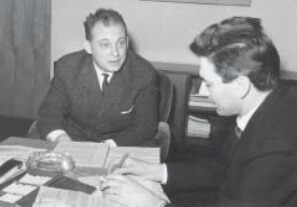
Pero Pirker (on the left) © Croatian Journalist Association / Wikipedia
Both corona and earthquake, as well as the mess suspected to find post-Bandić, are all just another challenge in the history of a town that is used to be challenged and always dancing victory laps.
While Đurašković explained comparisons of what was the most difficult challenge and who was the best mayor make no sense, Goldstein and Klasnić presented their pick. But, as respectable historians they are, they emphasized that it is their opinion and not an empirical fact, even though their arguments are both knowledgable and well explained.
In the end, politics should be about making people's lives better and not about chasing crowns or historical acknowledgments. And as Zagreb really needs a quality leader, the only logical conclusion is: may the best candidate wins, and may purgers recognize the best man or women for Zagreb to once again wave the middle finger to the aftermaths of the recent crisis as it overcomes them.
Learn more about Zagreb on our TC page.
For more about history in Croatia, follow TCN's dedicated page.
13 Million Ballot Slips to be Printed For 16 May Local Elections
ZAGREB, 5 May, 2021 - The Official Gazette's printing office in Zagreb started printing 13.7 million ballot slips for the coming local election on May 16 and this project costs about HRK 4.5 million.
There are 1,232 different voting slips that need to be printed for the election of county prefects, mayors, county and city assemblies.
In addition to ballot slips, forms to take minutes and procedures by election committees also need to be prepared including ballot boxes and cardboard screens for ballot booths.
The State Electoral Commission (DIP) is expected to release instructions on Friday regarding epidemiological measures during the election.
Anti-epidemic rules could be more stringent in comparison to last year's parliamentary election and masks will probably be compulsory at polling stations as will keeping a distance of at least 2 metres.
For more about politics in Croatia, follow TCN's dedicated page.
Average Age of Candidates in Local Elections 45 years
ZAGREB, 4 May, 2021 - There are nearly 39,000 candidates running in the local elections which Croatia will hold on 16 May, and their average age is 45, according to statistics released by the State Electoral Commission (DIP).
The two youngest candidates are a man and a woman, who both turned 18 on 29 March this year.
The youngest female candidate is on the slate of a four-party coalition led by the HSS Stjepan Radić party, and the youngest male candidate is on the slate of the HSP party.
The oldest female candidate, 91, is on the slate of the Zagorska Stranka za Zagreb party in the City of Zagreb.
The oldest male candidate, 92, is on the slate of a group of voters led by Dražen Vranić.
Many slates are gender-imbalanced
The DIP has given an instruction that the representation of any gender should not be below 40%. However, the instruction has not been followed in some cases and there are several slates consisting only of male candidates.
Such slates are valid, however, those who submit them can be fined up to 20,000 kuna.
For more about politics in Croatia, follow TCN's dedicated page.
10% of Mayoral Candidates Running Unopposed in May 16 Local Elections
ZAGREB, 4 May, 2021 - About 10% of the total of 555 towns and municipalities in Croatia already know who their mayors will be over the next four years because they are sole candidates running in the 16 May local elections.
The Croatian Democratic Union (HDZ) can already claim victory in four towns and 44 municipalities, as shown by the data on mayoral nominations available on the Electoral Commission's website.
This was also noted by the HDZ leader, Prime Minister Andrej Plenković, on Monday. "At this point the HDZ has already won in 48 local government units, which speaks of the strength of the HDZ candidates and the strength of the party," he said.
The ruling party has thus already secured mayoral posts in four towns - Pakrac, Skradin, Nin and Hrvatska Kostajnica. The majority of municipalities where the HDZ candidates are running unopposed are located in eastern Osijek-Baranja County.
In addition to the HDZ, some other parties have also already notched victories.
The Istrian Democratic Party (IDS) has sole candidates in two municipalities, the Social Democratic Party (SDP) and the Croatian People's Party (HNS) each have one such candidate and candidates of the Independent Democratic Serb Party (SDSS) will face no opposition in three municipalities.
In the southern municipality of Muć, the present long-serving mayor, who is running as an independent, is also the sole candidate.
For more about politics in Croatia, follow TCN's dedicated page.
Over 38,000 Candidates To Run in Croatia's Local Elections
ZAGREB, 30 April, 2021 - More than 38,000 candidates have submitted their nominations for executive and representative positions in the 16 May local elections, State Electoral Commission (DIP) president Đuro Sessa told a press conference on Friday.
Sessa reported on the number of submitted slates and nominations as the filing deadline expired at midnight.
There are 7,104 candidates on the slates for county assemblies, including the City of Zagreb, which has the status of a county, and 28,867 candidates on the slates for city and municipal councils.
A total of 225 people are running for county prefects and their deputies, including the candidates for Zagreb mayor and deputy mayor, and 1,901 candidates are in the race for municipal heads and mayors, including their deputies.
Eleven candidates running for mayors of Split and Rijeka
In Split and Rijeka there are 11 mayoral candidates, ten candidates are running for Zagreb mayor and seven for Osijek mayor.
After local electoral commissions announce valid nominations, electioneering will officially start in counties, cities and municipalities, and will last until midnight on 14 May, when a two-day electioneering ban starts.
The Saturday before the elections and the election Sunday are days of election silence, and the same rule will apply in the second round of the vote, to be held on 30 May.
There will be 6,572 polling stations, and each polling committee will have ten members, Sessa said.
Twenty-five tents to be set up for elections in earthquake-struck Banovina
The conduct of local elections has also been ensured in the earthquake-hit area.
Twenty-five tents will be set up the day before the elections in places where it is not possible to have polling stations inside buildings, said Sessa, adding that there will be eight tents in Glina, seven in Petrinja, four in Sisak, and three each in Donji Kukuruzari and Majur.
He called on voters to adhere to epidemiological measures.
He also confirmed that voters from the Banovina region who had moved away after the earthquake would not be able to cast their vote in another location, adding that he understands their problem but that it is not legally possible to conduct the elections differently.
There will be 14 million ballots in the elections and the organisation would be too difficult logistically, he said.
He recalled that all participants would have to enter their reports on advertising spending in a special IT system, which is a novelty in these elections. They will have to do that seven days before the elections and 30 days after them, Sessa said, noting that all data on finances will be released in one place, DIP's website.
Infected persons and those in self-isolation to vote under same conditions as in July
Persons in self-isolation and those infected with coronavirus will vote in the same way they did in July in the parliamentary elections. Polling committee members will come to their homes, and those infected will be able to cast their vote with the help of another person to avoid contact between polling committee members and an infected person, the DIP president said.
DIP spokesman Slaven Hojski said the election results would be released on election day starting from 9 p.m. and would be updated every 15 minutes.
For more about politics in Croatia, follow TCN's dedicated page.
HDZ Mayoral Candidate in Zagreb Davor Filipović: Fighting Corruption Top Priority
ZAGREB, 28 April, 2021 - The Croatian Democratic Union (HDZ) mayoral candidate in Zagreb, Davor Filipović, on Wednesday presented his election agenda, and said that fighting corruption was a top priority in the document.
"We are going to introduce the ISO 37001 anti-corruption standard, following the model set by the City of Prague, and it refers to the corporate responsibility, control mechanisms and action plans when there is suspicion of cases of corruption in the City of Zagreb or in any city institutions," said Filipović pledging to create an anti-corruption atmosphere in the capital city.
He also said that one of the priorities would be the fast and efficient post-quake reconstruction of the city and recalled that €683.7 million is available for this purpose through the EU Solidarity Fund.
The HDZ mayoral candidate promised free-of-charge services in pre-school day-care institutions for all the children in the city.
Filipović promised the closing of the Jakuševac waste landfill, the construction of a centre for waste management, and the modernisation of public transport vehicles, as well as the construction of the Jarunski Most bridge and a new stadium in Maksimir.
Filipović's agenda also envisages the establishment of a Homeland War Museum and a centre for war veterans in the city.
For more about politics in Croatia, follow TCN's dedicated page.
Croatian Democratic Union (HDZ) Zagreb Mayoral Candidate Davor Filipović Presents Candidates For His Deputies
ZAGREB, 27 April, 2021 - The ruling HDZ party's candidate for Zagreb mayor, Davor Filipović, on Tuesday presented candidates for his deputies, Iva Hraste-Sočo and Mirjana Kujundžić Tiljak.
Hraste-Sočo will be in charge of culture and reconstruction and Kujundžić Tiljak of health and education, Filipović said, recalling that he had promised to advocate the appointment of as many women as possible as managerial staff in the city administration.
Hraste-Sočo is a special advisor to the incumbent Culture Minister Nina Obuljen Koržinek and former deputy to former culture minister Zlatko Hasanbegović.
Kujundžić Tiljak is a professor at the Zagreb School of Medicine and director of the "Andrija Štampar" School of Public Health.
For more about politics in Croatia, follow TCN's dedicated page.
Croatia Local Elections To Cost Over €13.3m, Says State Election Commission Rep
April 18, 2021 - The upcoming Croatia local elections on 16 May should cost over 100 million. A member of the State Election Commission (DIP), Slaven Hojski, said on Saturday, announcing that the Croatian Public Health Institute (HZJZ) would issue recommendations for local elections.
"These are costly elections," Hojski said in an interview with the HRT public broadcaster, underscoring that the elections will be held in two rounds: on 16 May and the runoffs for mayors and county heads two weeks later, 30 May.
Hojski told the HRT broadcaster that the government had endorsed the DIP''s proposal to increase fees for polling committee members.
He said that there would be about 14 million ballots in the first round, 30 tonnes of paper will cost about five million kunas. Ten million kuna is for IT support, and 65,000 polling committee members at 6,500 polling stations receive fees. The chairperson is paid HRK 450, and a polling committee member is paid HRK 350 per round.
The fees for seven thousand election commission members range from two to six thousand kunas, depending on the number of polling stations in their remit.
As for the fact that the elections are taking place during the coronavirus pandemic, Hojski said that two recommendations of the Croatian Public Health Institute were in force -- regarding the work of electoral bodies and collecting signatures.
"Last year, the situation (concerning the parliamentary elections) was similar, and DIP received candidacies in the Croatian parliament. They (candidacies) are submitted at 576 locations, which is a bigger challenge since we have that many local, regional government units. All our polling committees have been instructed on how to organize work concerning the pandemic, and I think there will be no problems," he said.
As for collecting signatures, which began yesterday and will last until midnight on April 29, the HZJZ issued recommendations according to which stands for collecting signatures. People must keep their distance while queuing. Face masks are obligatory outdoors and a disinfectant must be provided.
Hojski said that DIP would issue guidelines on how people in isolation or self-isolation will vote for the entire election day, 16 May.
He said that those people would cast their ballot in the same way as in last year's parliamentary polls, so those in isolation and self-isolation would report to the election commission three days before the elections or to the polling committee on the day of the election.
Representatives of the polling committee will come to their house, and those infected will vote with the help of a trusted person, and polling committee members will not be in direct contact with them.
Polling station in tents in earthquake-hit areas
Hojski said that DIP had detected 51 polling stations out of function in Sisak-Moslavina County due to the 29 December earthquake, and a replacement location, a tent, has been found for 26 of them.
"The polling station will be in a tent with all logistics, and civil protection will provide tents, logistics, generators, lighting, and everything needed for the elections to be held properly," he said.
For more about politics in Croatia, follow TCN's dedicated page.
Opposition Accuse Government of Trying to Buy Votes From Pensioners and Young People
ZAGREB, 15 April, 2021 - Parliamentary opposition parties on Thursday criticised the government's plan to pay a COVID supplement to pensioners and a tax refund to young people in the run-up to local elections as vote buying.
Arsen Bauk of the Social Democratic Party (SDP) told reporters in the parliament building that the government "has obviously sorted its priorities to ensure the best possible election result" for the ruling Croatian Democratic Union (HDZ).
"We support a COVID supplement for pensioners, even before elections. I think the Croatian democracy is mature enough and that this will not result in voters voting en masse for the HDZ," Bauk said.
Homeland Movement MP Stjepo Bartulica said that Prime Minister Plenković often expressed his disdain for populists. "I see a great dose of populism in the timing of this measure," he said.
"We are all equal in Croatia, but obviously some groups are more equal than others, especially with elections coming up. In principle, I am not against helping the pensioners, but the way in which the government runs its policies actually increases cynicism in Croatia," Bartulica said.
Bridge's Božo Petrov noted that the government had promised several years ago that the living standards and monthly incomes of pensioners would rise considerably, suggesting that the measures proposed by the government should remain permanent.
Bojan Glavašević of the Green-Left Bloc said that "the pensioners and young people, as vulnerable groups, need systematic rather occasional assistance."
Unlike the opposition, the HDZ's Ivan Ćelić disagreed that this was an attempt at vote buying for local elections. "Let me remind you that a month before elections the (SDP) government of Zoran Milanović gave away electricity vouchers of HRK 200, which can be seen in the same way as the COVID supplement," he said.
(€1 = HRK 7.5)
For more about politics in Croatia, follow TCN's dedicated page.


